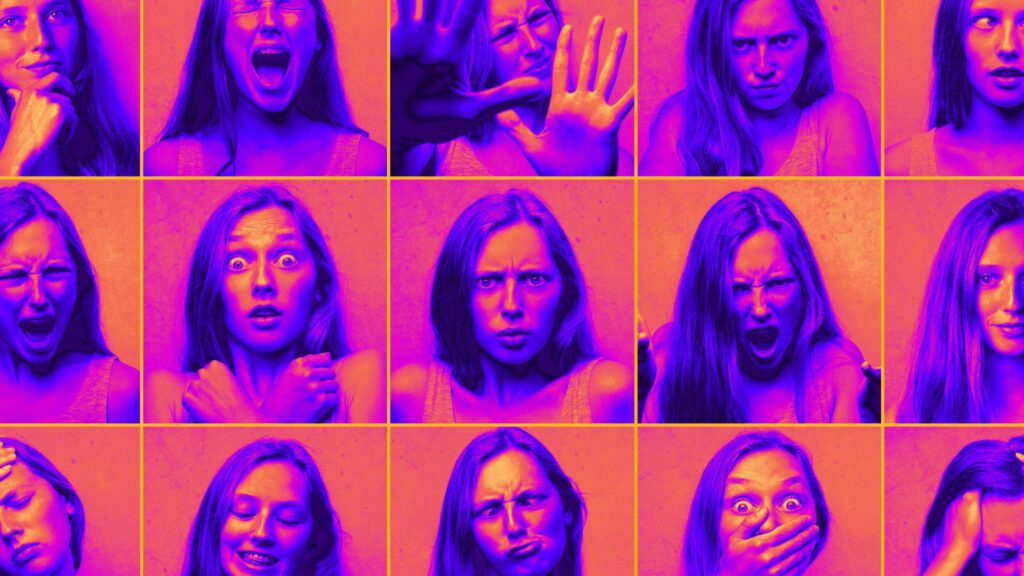When a celebrity announces they’re “releasing” an adult tape, it’s usually dismissed as a publicity grab.
British reality star Vicky Pattison is doing just that with her latest project, but she’s not doing it to segue into an adult career.
In her new documentary, Vicky Pattison: My Deepfake Sex Tape, the reality star takes a bold, unflinching look at how AI technology is being twisted into a weapon against women and children.
Who is Vicky Pattison?
Pattison became a household name in the U.K. in 2011 as one of the original cast members of MTV’s Geordie Shore (the U.K.’s version of Jersey Shore). Known for her no-nonsense attitude and razor-sharp wit, she quickly became one of the breakout stars of the chaotic reality series.
Since leaving the show, Pattison has reinvented herself as a media personality, winning I’m a Celebrity… Get Me Out of Here! in 2015 and appearing on Celebrity MasterChef. Along the way, she’s built a loyal fanbase by speaking candidly about her struggles and triumphs.
Why deepfakes matter now
Deepfakes are no longer just sci-fi plot points or internet curiosities—they’ve become tools of exploitation.
Pattison’s documentary sheds light on how AI is used to superimpose victims’ faces onto explicit content, often without their knowledge or consent. She released images as part of the documentary’s promotion, and they’re disturbingly convincing.
But even more disturbing is that deepfakes have surged globally, with a 10x increase in detected cases across industries in 2023.
Even more alarming is the impact on minors.
In 2023, students at a New Jersey high school used an AI-powered app to generate explicit images of over 30 girls, sharing them in group chats. A survey by the Center for Democracy & Technology found that 15% of U.S. high school students knew of deepfakes depicting their peers, highlighting the alarming normalization of this abuse.
Vicky’s brave experiment
To capture the insidious nature of this technology, Pattison took an unprecedented step: she directed and produced her own deepfake video, superimposing her likeness onto a consensually filmed explicit scene.
“I wrestled with this decision for a long time,” Pattison said in a recent interview. “Ultimately, I realized that while this doesn’t compare to the trauma victims face, it’s the closest I could come to understanding their experiences.”
Pattison’s aim isn’t shock value—it’s empathy and education.
“I want this documentary to bring attention to the imbalance of power and encourage society, lawmakers, and tech companies to provide stronger protections,” she added.
The unseen toll
Deepfake abuse disproportionately targets women, with 72% of reported cases to a U.K.-based revenge porn helpline involving female victims. Many suffer in silence, unaware their manipulated images are being traded online. Kate Worthington, of the Revenge Porn Helpline, told The Guardian that “collector culture” drives this abuse, with perpetrators sharing and glorifying explicit content for status.
Victims describe feelings of betrayal and lasting trauma.
One survivor, pseudonymously known as Jodie, told The Guardian that she discovered hundreds of explicit deepfakes of herself online, many featuring images stolen from her private social media accounts. “The shock and devastation haunts me to this day,” she said.
A call to action
Pattison’s documentary urges lawmakers to close legal loopholes that allow deepfake creators to evade accountability. With generative AI fraud losses predicted to reach $40 billion by 2027, Pattison’s plea for systemic change feels especially timely—and urgent.
“While the technology enabling deepfakes is new, the behavior isn’t,” Dr. Anna Gjika, a researcher specializing in technology-facilitated gender-based violence, told Tech Talk Press. “This is the latest iteration of a long history of image-based abuse. Addressing it requires not only legal action but cultural change.”
Vicky Pattison: My Deepfake Sex Tape premieres in the U.K. later this month.
